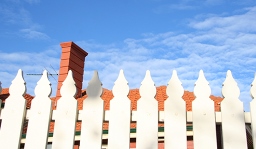Last financial year, the property market was a hot topic, especially in cities like Sydney and Melbourne where we experienced what some called a housing bubble.
 In this article, we ask Dr Shane Oliver, Head of Investment Strategy and Chief Economist, to give us an overview of how property is faring so far in 2016, and what his predictions are for the spring property market.
In this article, we ask Dr Shane Oliver, Head of Investment Strategy and Chief Economist, to give us an overview of how property is faring so far in 2016, and what his predictions are for the spring property market.
Q: What are your thoughts on how the property market has performed in the first half of the 2015-16 financial year?
A: It’s been pretty mixed. In Sydney and Melbourne, the property market slowed down initially when the Australian Prudential Regulation Authority (APRA) introduced measures to slow down bank lending to property investors. Then it picked up again around March this year, but it’s not as manic as the boom time we saw in property markets in Sydney and Melbourne during the first half of 2015.
Overall gains have been around 10%. Other cities such as Brisbane, Adelaide, Canberra and Hobart saw gains of around 5% on average, while mining-related cities, like Perth and Darwin, have had falls.
Q: In March last year, we published an article that discussed whether we are in a housing bubble. Would you say that we are?
A: No, we’re not. A housing bubble is when properties are overvalued, but it also involves a level of mania where people are obsessed with buying properties. This fuels the increase in property prices and causes them to inflate into a ‘bubble’ which becomes self-perpetuating, and we are no longer seeing that.
Overall, property auction sales volumes in Sydney and Melbourne are now down about 15-40% on what they were a year ago. I expect to see more moderate price gains in these two cities, as they will be affected by poor affordability, ongoing APRA measures to slow down bank lending and more cautious demand, especially given that there have been huge price gains over the last three years.
Other cities, such as Adelaide and Brisbane, are expected to perk up a bit in coming months.
Q: What do you think will happen with interest rates, and how will this impact the property market?
A: I think there’s very little chance of rates going up in the next year or so–it’s more likely they’ll go down–so that provides a level of comfort, especially for owner/occupiers in the property marketplace.
It’s also unlikely there will be a property crash in the near future. This usually happens after a period of high interest rates or much higher unemployment which causes debt servicing problems, neither of which is likely in the next year or so.
Q: Is it better to buy houses or apartments in the current market?
A: Apartments are a lot more vulnerable because there is a massive multi-dwelling building boom going on in Brisbane, Sydney, Melbourne and Perth. There’s a real risk of oversupply. I wouldn’t be surprised to see outright price falls in apartments in Sydney, Melbourne, Brisbane and Perth.
So people are better off waiting until the dust settles to see if there are any opportunities to buy apartments with a lower price tag.
Q: How will first home buyers be affected?
A: There are more opportunities because auctions are less manic now. Banks are more interested in loaning to occupiers and we have seen the market slow down for investors due to APRA regulating bank loans. So this will make it easier for first home buyers.
Having low interest rates also helps, but affordability is still poor. If you’re looking to get into the property market, consider getting an apartment, but wait for the surge in supply to hit the market first.
Q: So what is your prediction for the spring property market?
A: If there are further interest rate cuts by the Reserve Bank, it will add a spark to the spring property market. But if the market starts off too hot, APRA and the Reserve Bank could step in again to slow it down. Overall, I think the property market will be reasonable, but nowhere near as hot as it was in Sydney and Melbourne in 2014-15.
Source: AMP August 10th, 2016
